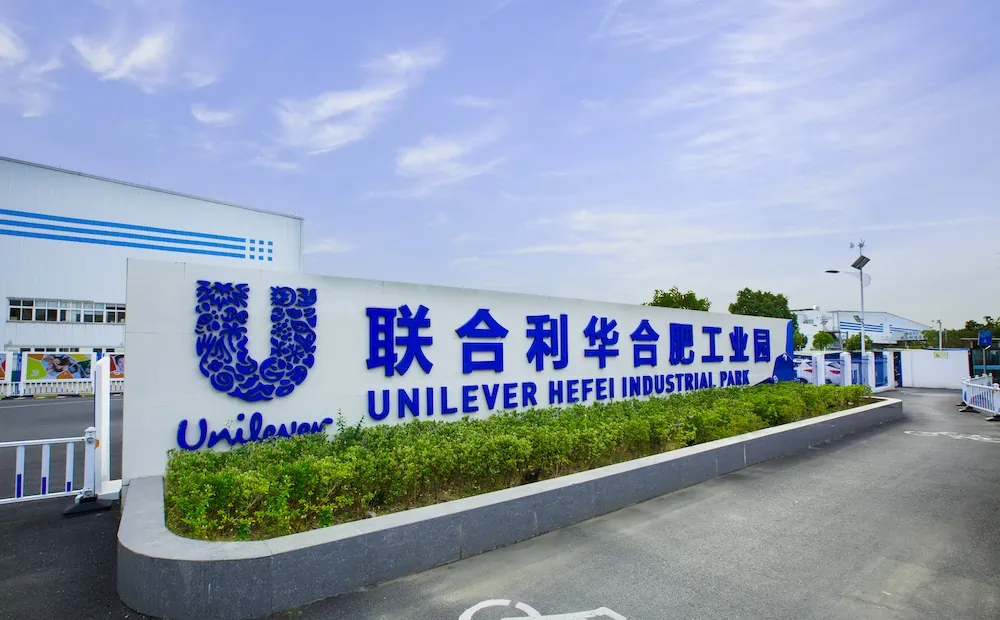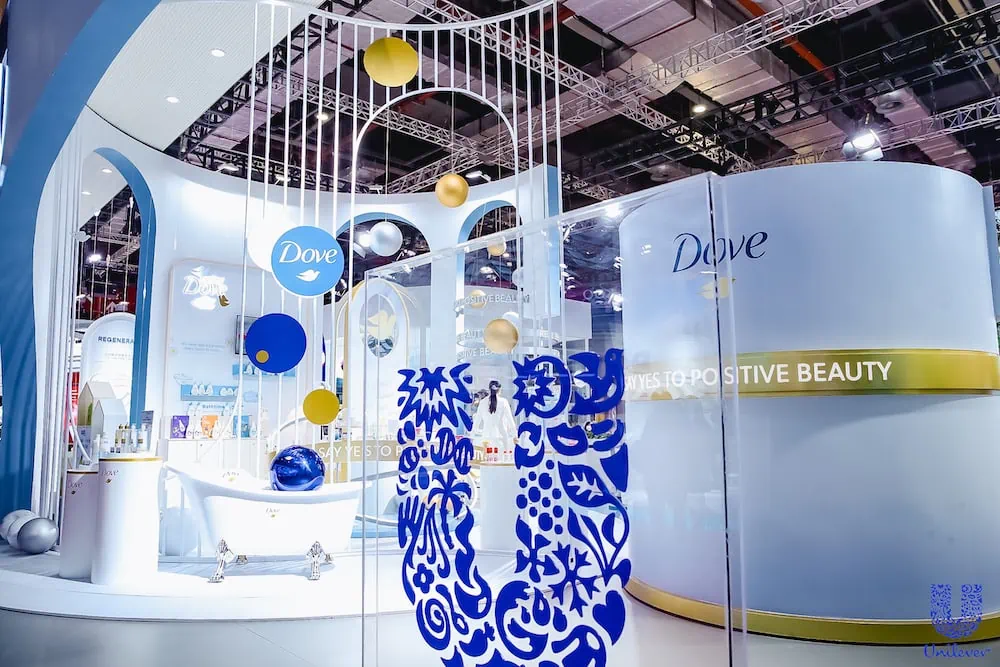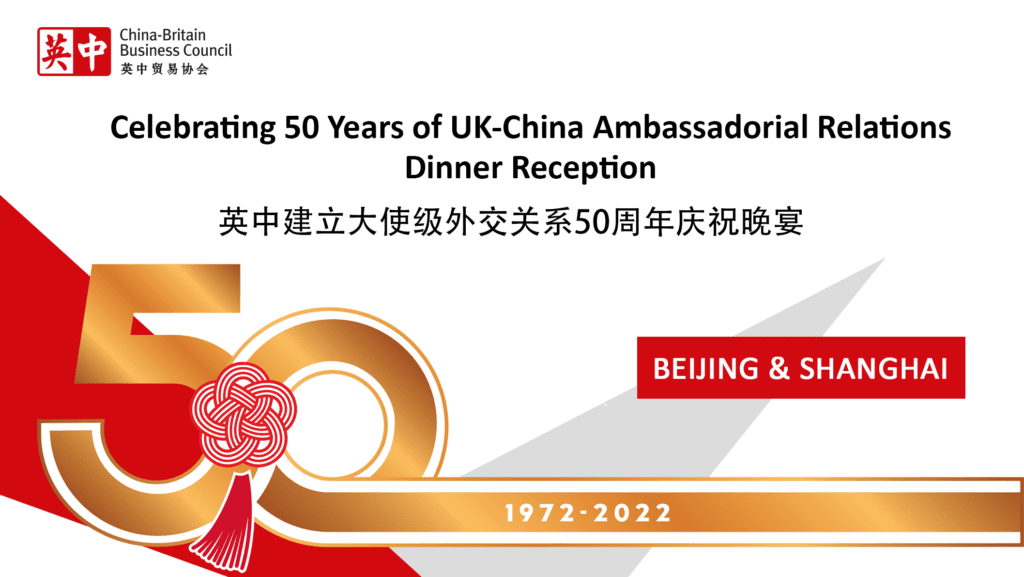In the lead-up to two events in Beijing and Shanghai celebrating the 50th anniversary of UK-China ambassadorial relations, FOCUS speaks to British companies that have experienced success in the Chinese market over the last half a century
In this third instalment, Unilever reflects on using cutting-edge R&D to develop products that not only benefit the lives of Chinese consumers but have also been adopted around the world.
How and when did Unilever enter the Chinese market?
Unilever first came to China early in 1923, when we established the largest soap factory in the Far East in Shanghai – 2023 marks the 100th year since Unilever’s investment in China. We were also among the first batch of multinationals to enter the Chinese market after reform and opening up in the 1980s. Over the past century, Unilever has grown alongside the Chinese people, providing products and services to its 1.4 billion consumers, and witnessed and contributed to the development of the country’s consumer goods industry. We are devoted to delivering a better life to people around the world.
What achievements and developments has Unilever enjoyed in China?
To date, we have invested more than $3 billion in China. Over the past 30 years, we have set up our North Asia Headquarters and one of our global R&D centres in Shanghai, established eight production bases, and operated more than 40 well-known brands in China, providing cleaning and health products and services to more than 150 million households. Today, China has become one of our top three key global growth markets.
Below are some of the achievements we are most proud of in specific sectors:
R&D and Innovation
In 2009 we launched our sixth global R&D centre in Shanghai, with an investment of over $100 million and a staff of nearly 400 R&D personnel from 12 nations. Backed by its huge R&D manpower reserves and the world’s most cutting-edge R&D facilities and experimental equipment, the Shanghai R&D centre has achieved a great wealth of patented technologies and R&D outcomes and developed many innovative local products that have been a hit with Chinese consumers. Many of the centre’s achievements have been recognised and adopted in foreign markets.

Regenerate toothpaste products developed by Unilever’s Shanghai R&D centre
For example, after ten years of research, the Shanghai R&D team launched a groundbreaking new product in the toothpaste industry, Regenerate NR5TM, a bio-mineralisation technology that can repair enamel minerals.
Intelligent Manufacturing
Unilever has a complete industrial layout in China, with eight production bases and logistics centres across the country and large comprehensive production bases placed in the eastern Yangtze River Delta region, the northern Beijing-Tianjin-Tangshan region, the western Tianfu New Area, and the southern Pearl River Delta region. We are continuing to improve the flexibility and efficiency of our supply chain by upgrading our digital and intelligent capabilities. To date, three of our factories in China have been recognised by the World Economic Forum’s Global Lighthouse Network.
Zero Carbon Vision
Driving superior performance with purpose-led, future-fit business is the Unilever Compass. It is our goal to achieve high-quality and sustainable growth. Over the years, we have worked actively with upstream and downstream partners to help improve the health of the planet, improve people’s health, confidence, and well-being, and contribute to a fairer and more socially inclusive world. For example, our Hefei HB factory and the Truliva factory in Ningbo received “Six-star Zero-carbon Factory” certification, while the “Go Green Go Lux” project has been protecting the Sanjiangyuan region and improving the lives of the residents for more than 10 years.
What are your thoughts and reflections on the Chinese market today?
The once-in-a-century changes we are facing today are putting pressure on the globalisation of multinational companies, but China’s actions in further opening up its market and improving the business environment have given confidence to the multinational companies operating in the country.
Unilever has been serving Chinese consumers for 100 years, and we are starting off our next 100 years with determination and careful planning; our commitment to the Chinese market won’t change due to short-term changes in the environment. Multinational companies are an important part of China’s reform and opening up. Using foreign investment to promote development is one of the country’s national policies.
What are Unilever’s ambitions and plans for the future in China?
Unilever is continuing to expand its industrial layout in China. In 2022, we completed the construction of the RMB 1 billion Taicang ice cream factory. In the same year, we began the construction of a new factory in Guangzhou. With nearly RMB 2 billion invested, the Guangzhou factory will be our first full-category production base in China, covering the production of personal care products, food, and ice cream. Relying on the geographical advantage of the Guangdong-Hong Kong-Macao Greater Bay Area, it will satisfy internal demands and supply overseas markets when completed.
Moreover, in responding to China’s carbon peaking and carbon neutrality goals, we will carry out more environment-friendly projects to help improve the health of the planet. Sustainability will continue to be a principle we follow throughout the whole process of our business, and we will continue to embrace digital and innovative technologies to provide a better consumer experience and create bigger value for the industry.

Unilever’s Hefei Industrial Park has been recognised by the World Economic Forum’s Global Lighthouse Network
What do you think China will look like in 50 years?
As mentioned in the report of the 20th Party Congress, China aims to achieve socialist modernisation by 2035. As China heads towards this encouraging goal, Unilever is starting a new 100 years in the country. The future ahead will be a picture of Unilever and China walking and growing together. We will remain committed to the Chinese market and, more importantly, do our part to contribute to its modernisation drive.
With the disruption of 2022 now behind us, the China-Britain Business Council is excited to share the newly confirmed dates for our celebration of 50 years of UK-China Ambassadorial Relations dinner receptions in Beijing and Shanghai.
The Beijing dinner reception will be held on Tuesday 21 March 2023 at the Intercontinental Sanlitun and will be attended by senior officials from China’s central government, ministries, and regulators along with municipal and provincial leaders. Learn more about the dinner in Beijing here.
The Shanghai dinner reception will be held on Tuesday 28 March 2023 at Intercontinental Jing’an and will be attended by senior representatives from municipal and adjacent provincial government organisations.
The dinner receptions are an ideal opportunity for our members to engage with CBBC’s network of senior contacts in both the Chinese and UK Governments as well as key local enterprises.





